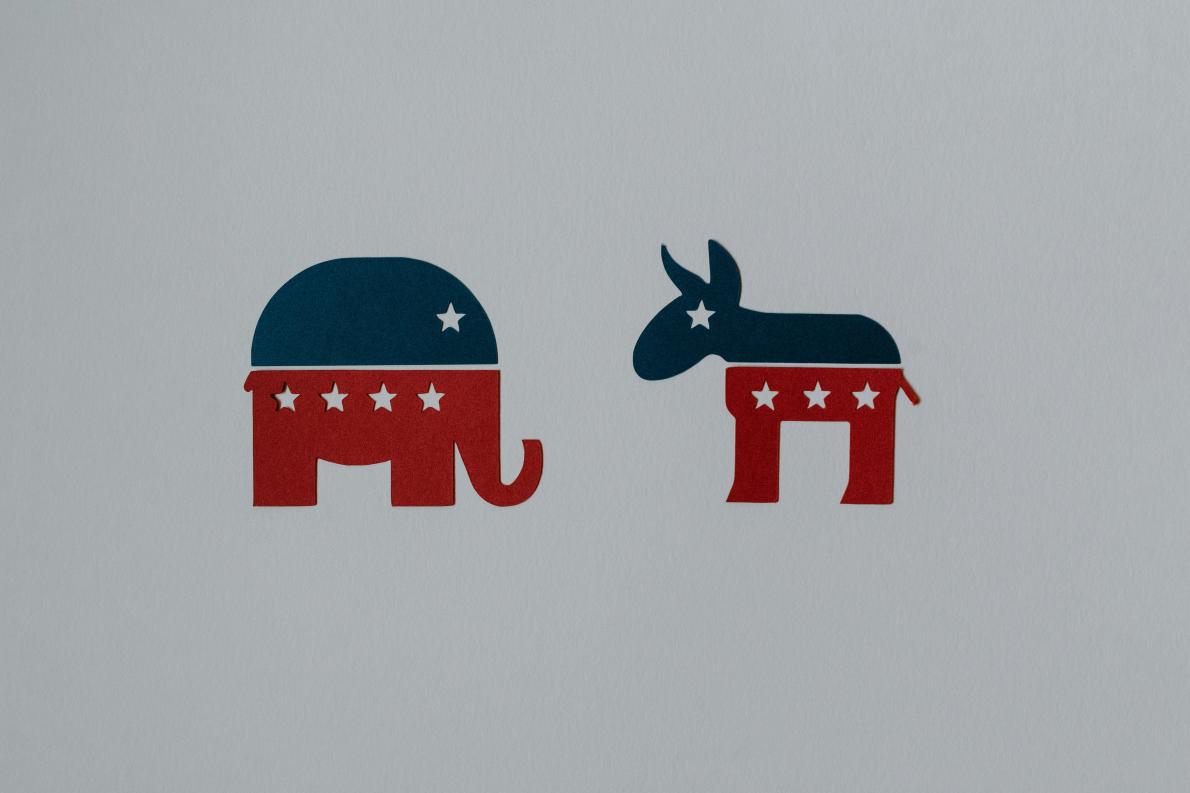January 2024 D&I Update: Politics and DEI

With Iowa and New Hampshire in the books, the country is now fully engaged in the 2024 campaign season. One aspect of diversity that is frequently overlooked in diversity, equity, and inclusion discussions is diversity of political opinions. If we want everyone to feel included in our department (and we do!), this must include political diversity.
Political inclusion has felt progressively more challenging over the past 10-20 years. Instead of differing ideas, political parties became enemies, and the goal became winning. Even those of us who are not in politics probably feel like part of one team or the other, and the other side is the hated rival. We’re Duke: how much does it drive us nuts to see UNC win even when we aren’t playing them? This feeling of anger and aversion has been translated to how we view political wins for the party we oppose.
Unlike sports, though, politics is not a zero-sum game. One side winning doesn’t guarantee that the other side is losing. Society and the law are far more complex with nuanced benefits and detriments depending on a myriad of factors. That’s why I found this opinion piece in the Washington Post so fascinating.
To summarize, Catherine Rampell talks about how data show that both sides of the aisle perceive they are losing! The right thinks the country is moving left and the left thinks the country is moving right. Both can’t be true, right? Well, yes, of course they can. We can move left on some things and right on others. It turns out, though, that our political losses resonate emotionally more than our political wins, leaving us feeling vulnerable and threatened. It’s a cognitive bias in how we perceive the world.
I think this is a hugely important lesson. If you are discussing politics with someone who disagrees with you, keep in mind that they, too, are probably scared for the future; it’s one thing we all apparently share. Whether or not you believe they should feel threatened is not the point. They feel how they feel, and we do not get to tell each other how to feel. When you enter a discussion with compassion for the feelings of those with whom you disagree, it’s almost certainly going to have a better outcome.
Finally, let me add that another bias that’s common in the department is assuming we share political views based on the various demographic stereotypes. Durham is a largely Democratic city, and academic institutions famously lean left. That does not mean that Duke Neurology is homogenously liberal. In fact, quite the opposite. In our 2020 departmental census, a quarter of the department identified themselves as being politically right of center, and I suspect this is somewhat underreported. Meanwhile, 40% rated themselves centrists. We will be updating the census later this year, but suffice it to say, we are politically more diverse than many might assume.
